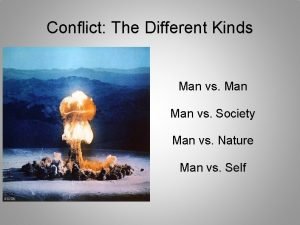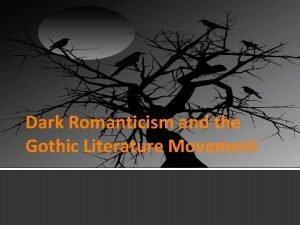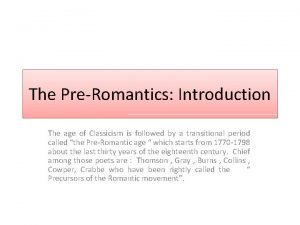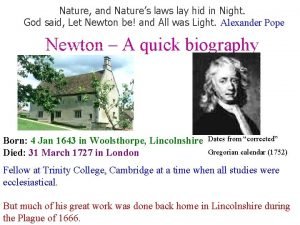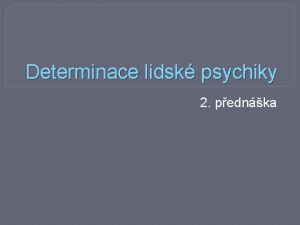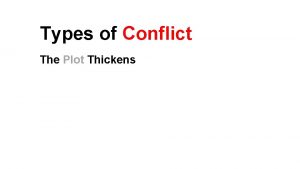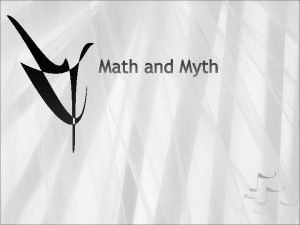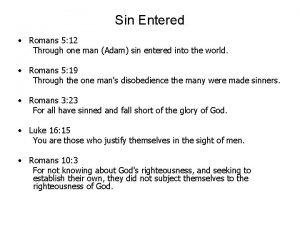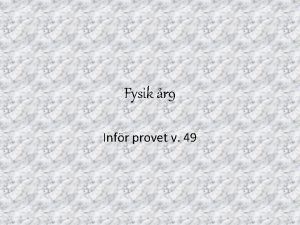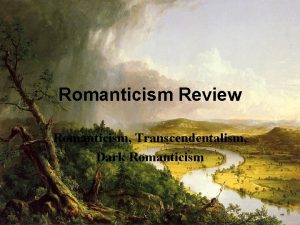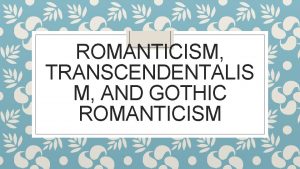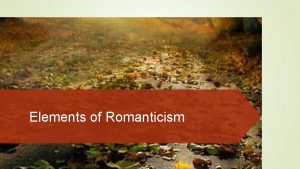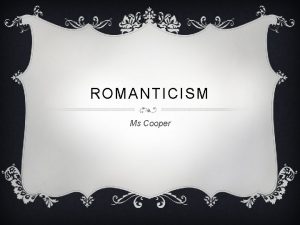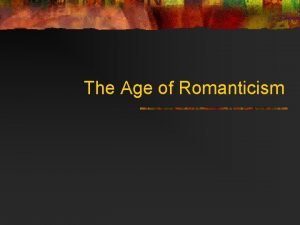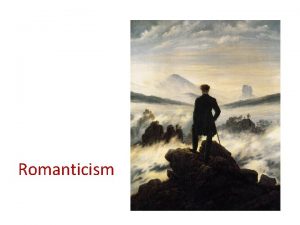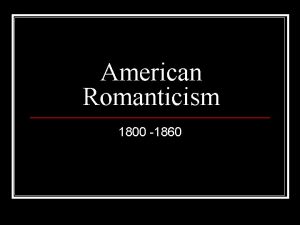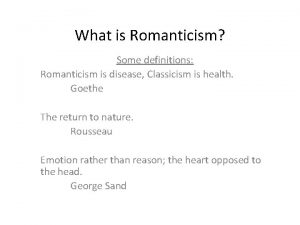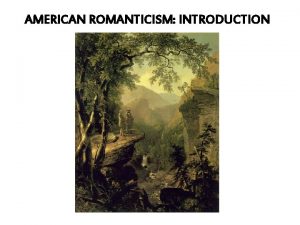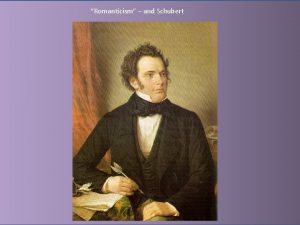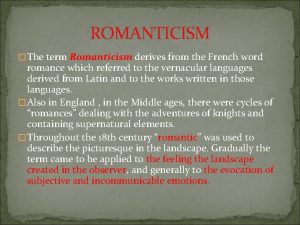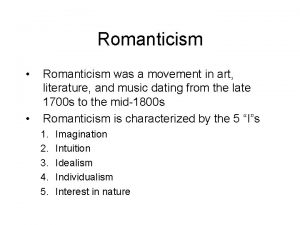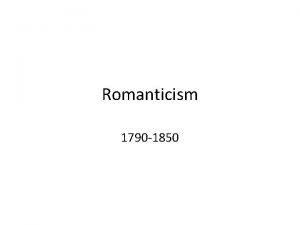Romanticism God in Man God in Nature God














- Slides: 14

Romanticism God in Man, God in Nature, God is Dead

The Movement • Revolt against classicism and the enlightenment – Rationality, order, restraint – Believed that the Greeks and Romans had discovered eternal aesthetic truths • Started as mainly a German movement but it drew inspiration from Jean-Jacques Rousseau – “Man is born free and everywhere he is in chains” – Too much poorly designed education – Society (civilization) has corrupted man and a return to nature’s innocence was the proper antidote

Rousseau’s Discourse on the Arts and Sciences • astronomy was begot by superstition, eloquence sprung from ambition, hatred, flattery, and falsehood; geometry is a child of avarice, physics rose from vain curiosity, ; and all, even morality itself, are effects of human pride. The arts and sciences then owe their birth to our vices; we should be less in doubt of their use and advantage had they sprung from our virtues. The stains of their origin but too plainly appear in their objects. What should we do with arts and sciences without that luxury which feeds them? If men were just we should need no law-learning. What would history become, if we had neither tyrants, wars, nor conspirators? Who, in a word, would pass his days in barren contemplations, if each particular, only consulting the duties of man and necessities of nature, had but just time enough to mind his country, to succor the distressed, and provide for his family? Were we made, think you, to die peeping into the deep well whither truth is retired? This thought alone ought to deter ever man from seriously attempting to be instructed by the study of philosophy.

Sturm und Drang Movement • Storm and Stress • Johann Gottfried von Herder was the leader of the Literary precursor to Romanticism in Germany – Opposed the enlightenment and French rationalism – Emphasized Volksgeist (spirit of the people) • Could be found in language, literature and religion • Were highly individualistic and rejected materialism – Wore long uncombed hair, lives full of intense emotion, prone to strange illness, suicide, duels • Cause furthered by work of Johann Wolfgang von Goethe The Sorrows of a Young Werther and philosopher Friedrich Wilhelm Joseph von Schelling (artist as ideal man), Friedrich von Schiller (universal fellowship of man – Schiller’s An die Freude (to Joy) was used by Beethoven in the final movement of the Ninth Symphony

Arthur Schopenhauer • Reality is a blind driving force manifested in man as Will • Individual wills clash inevitably causing strife and pain • No escape except by negating the Will • Temporary escape could be made through creativity in art and science • Creativity comes from the unconscious but the will tries to block it • Blind human will only achieves unhappiness • Concluded that reason must permit the release of creativity while controlling the passions

Romantic Tenets • Romantics were enchanted by nature • Source of spiritual inspiration – John Constable- “Nature is Spirit Visible” • Saw the Industrial Revolution as ugly and destructive as they idealized the Middle Ages • Perceived the world to be organic and dynamic as opposed to mechanical and static • Historical studies became important

Literature • Romantic Poetry and Prose first flourished in England • Wordsworth, Coleridge, Scott, Blake, Byron, Shelley, and Keats • Historical Novels, Gothic tales, romantic stories of love and adventure • Poetry portrays nature as the dwelling place of God

Transcendentalism • An American off-shoot- search for beauty and truth – Knowledge gained through intuition surpassed that gained through reason and logic – Human beings and the universe were in perfect harmony and were moving in Hegelian Manner toward perfection – Saw the human conscience as the sole judge in spiritual matters – Stressed self-reliance and social reform • Bronson Alcott- Established new school in Boston • Ralph Waldo Emerson- saw poetry as the necessary function for those seeking truth • Henry David Thoreau- returned to nature briefly and espoused a philosophy of passive resistance and moral idealism • Margaret Fuller- Translations of Goethe- new approaches to education at Greene St. School in Providence

William Blake • Self proclaimed mystic, fundamentalist, saw people as the divine image • The Tyger 1794 • Did the good God create evil? • See Handout

William Wordsworth • Nature Poet influenced by Rousseau • Called his poetry “emotion recollected in tranquility” • The World is Too Much With Us- 1802 • Mourns a world so overwhelmed by materialism that it might lose all sense of spirituality • Optimistic that nature would prevail in the long run • See handout

Percy Shelly • Saw humanity as the divine image that poets attributed to God • Kicked out of Oxford for being an Atheist • Denounced Marriage as being hostile to human happiness • Name becomes synonymous with Romantic Poetry

Ralph Waldo Emerson • Graduate of Harvard Divinity School • Unitarian Minister • Brahma 1856 – The voice of the Absolute Spirit and World Creator reminds the reader that a single identity underlies all apparent differences in nature

Henry David Thoreau • 1845 abandoned urban life to live in the woods for a bit • Lasted for 26 months and thoughts were recoded in a journal and then written into his famous work Walden – Shows his love of nature and non-conformist attitude toward society – See handout

Friedrich Nietzsche • One of Nietzsche's fundamental contentions was that traditional values (represented primarily by Christianity) had lost their power in the lives of individuals. He expressed this in his proclamation “God is dead. ” He was convinced that traditional values represented a “slave morality, ” a morality created by weak and resentful individuals who encouraged such behavior as gentleness and kindness because the behavior served their interests. Nietzsche claimed that new values could be created to replace the traditional ones, and his discussion of the possibility led to his concept of the overman or superman. • See handout
 Man v.s society
Man v.s society Dark romanticism
Dark romanticism Age of classicism
Age of classicism The romanticism (1795 — 1835) what is romanticism
The romanticism (1795 — 1835) what is romanticism Nature and nature's law lay hid in night meaning
Nature and nature's law lay hid in night meaning Nature nature controversy
Nature nature controversy Whats man vs society
Whats man vs society Legalism believes the nature of man is evil.
Legalism believes the nature of man is evil. Depravity def
Depravity def Ever since ancient times
Ever since ancient times By one man sin
By one man sin Man lernt solange man lebt
Man lernt solange man lebt Det man vinner i kraft förlorar man i väg
Det man vinner i kraft förlorar man i väg Peter is hungry. give ... a sandwich
Peter is hungry. give ... a sandwich Old man and new man
Old man and new man
